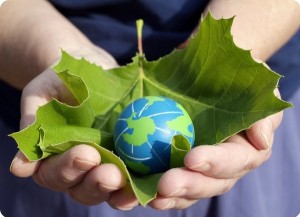Abu Dhabi, UAE: The UAE should prioritise sustainable development to ready itself for life after oil, experts say. Academics are looking at how best to achieve this, and how to train a new generation of Emiratis to do so.
Dr Sami Mahroum, of the Insead business school, has been researching the subject for Abu Dhabi‘s government. He favours mandatory green-building standards and government support.
“If the government subsidised it, there wouldn’t be those jumps in cost,” Mr Mahroum said. “In time, the UAE could be a source of new technologies and solutions.”
Construction accounts for about 30 per cent Abu Dhabi’s economy, putting it second only to oil.
“It’s such a big economic sector that an increase in productivity would lead to results which would show quickly and affect the economy,” he said.
“There is an increased global demand for green buildings. If someone can sell green solutions there is a global market for it. Not only is it environmentally clean, but it’s energy efficient and therefore cheaper.”
The problem, Mr Mahroum said, was that construction was often seen as a low-skilled sector. “Construction is an area that’s taken for granted by the UAE government, and they don’t see it as a source of innovation or an area they should specialise in,” he said.
Dr Yasser Al Saleh, who finished his postdoctoral research at the Masdar Institute in 2011, has been researching sustainability and its place in the future of the country’s economy at Insead.
“Sustainability is an emerging industry,” he said. “People we interviewed identified the lack of regulation. To make it fully established, there is a need for strong incentives from the Government.”
The country will need to change its image as one of the world’s biggest per capita contributors to CO emissions, he said.
“Abu Dhabi is leading this change, holding the World Future Energy Summit, Masdar, the headquarters of Irena [the International Renewable Energy Agency] but we need to embrace the opportunity we have now for this increasing demand.”
Dr Al Saleh has been looking at how to raise awareness of clean energy, and found that tying the subject to Sheikh Zayed’s vision and Quranic references have proven most successful.
“It can attract people’s attention,” he said. “Compared to the rest of the region, we were surprised how high the awareness was here.”
That has been helped by campaigns such as the Environment Agency Abu Dhabi’s “turn it off” effort, and the support of global projects such as Earth Hour.
Universities have already spotted the gap in the market, with initiatives such as the Estidama system and Pearl rating frameworks requiring experts in the field.
There are now dedicated degrees, such as the British University in Dubai‘s masters course in sustainable design of the built environment, launched in 2003.
Dr Hanan Taleb, who teaches in the programme, said education was essential for achieving sustainable development.
“Nowadays, sustainability related aspects are covered within the curricula of the vast majority of educational establishments around the world,” she said.
“We need to equip higher education graduates, who are likely to occupy future management and leadership roles, with knowledge and skill sets that help them in making informed decisions while taking account of complex social, environmental and economic issues and their interrelations.”
Many students on the course are already working full time as architects and engineers.
“What they learn at the British University in Dubai feeds with new innovative ideas and helps them on what they are doing at work.”
Setting up the course was “about giving people, communities and organisations new sets of skills and knowledge, so that they can identify and respond to sustainability challenges in ways which lead to long-term and sustained change.”
MIDDLE EAST, UAE, UAE Academics call on green rules for new buildings
Unknown
20:26





0 Comments